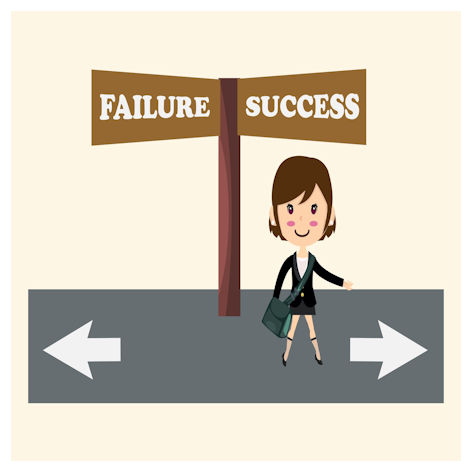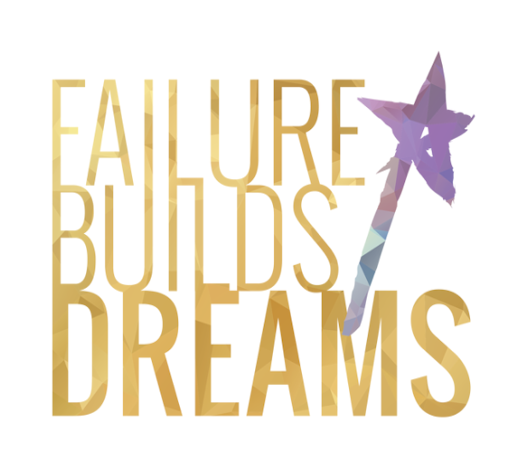What’s the right attitude to online business success?
Have you got a growth mindset?
What’s the right attitude to online business success? That is the question. In 2010 at Michigan State University the psychologist Jason Moser began a test which we define whether or not you believed you could improve the abilities you were born with persistence and determination.
Neural Signals
To test this, he needed to understand what happens on a neural level when people make mistakes. He was interested in testing to brain signals.
The First Reaction To Failure
This signal is known as the error -related negativity or ERN signal. This signal begins in the cortex which is the brain area that helps us regulate our attention spans. It’s mostly involuntary which means we not consciously aware of affecting it and it’s the brain’s response to a mistake.
The ERN signal is the first reaction from the brain and is a bigger signal the second smaller signal causes us to focus on the mistake and hone in on it. Previous medical studies have shown that we learn best when both of these signals come into play.
The Second Neural Signal is the one That Affects How we perceive Failure

The second one was error positivity or the Pe signal. This reaction happens between 200 and 500 ms after a mistake; it happens when you realize you have made a mistake. The reason it was interesting to Moser was when people are aware of the signal are they more likely to learn from the mistake? This signal determines the right attitude to online business success.
Before he began his experiments, Moser divided his students into two groups. He has both groups to fill in a questionnaire. The purpose of this survey was designed to find out about their mindset. Did they believe that they could improve in life with practice and tenacity or did they believe that their abilities were more or less fixed at birth and couldn’t be improved?
Nature v Nurture
Science believes that success is based on innate qualities and also what happens in your life. The debate between nature and nurture still rages, and they can’t be separated. This was not so much of interest to Moser what he wanted to drill down into was how the volunteers rated their thoughts on the issue. This challenged them to think about their basic belief and assumptions. Most of the time when we are not consciously thinking about something we are driven by these unconscious thoughts.
Thoughts That Shackle us Are Not often Ours

Ironically these conscious thoughts are often other people’s thoughts! We have incorporated those thoughts into our beliefs when we have heard our parents say negative things, or our grandparents or anybody else we been in contact with.
The essence of the experiment was to place an EEG In the schools of all the participants. Their task was to isolate the middle letter of a five-letter sequence. Essentially the series is very simple sometimes they had the same letters such as CCCCC, or it could have been CCRCC. Despite the fact that this test was essentially very simple most of the participants lost focus and made mistakes.
All this is fairly predictable because the tests were essentially boring the participants lost focus and made a mistake. What was interesting was the dramatic difference between the two groups in how they reacted to their mistake.

A Powerful Difference In Signals
Both groups had a strong ERN response because this is largely involuntary, the brain sits up and pays attention when it makes a mistake. When it came to the second signal the Pe signal, there was a huge difference in the reaction. The people who had identified themselves as having a growth mindset had a huge reaction. In fact, the growth group had a signal which was treble the fixed mindset group.
The Conclusion
Moser interpreted this to mean that those with a fixed mindset essentially ignored the problem of a mistake. Those with the growth mindset paid attention and their second signal was very strong. But more importantly, the size of the signal was in direct proportion to the improvements in their performance following the signal.
The Positive Power of Engaging With Failure
This means when we engage with failures we improve. It also explains very graphically how some people learn from their mistakes and other people just keep repeating them again and again. We react to our failures in direct proportion to how we conceptualize those failures. The participants with the growth mindset believed that failure is the inevitable part of learning. Therefore, they attached no culpability or blame to it. They didn’t hang onto it ,they felt it could be changed and in a dramatic way it was.
Those who believe that talent is innate we are born with a certain amount of it and it can’t be improved are threatened by their mistakes. Every time they fail they think “well, of course, I don’t have what it takes!” It doesn’t matter what I do I will never be good enough!
Embrace Failure
Does any of these two attitudes strike a chord with you? Which one are you? Another experiment by Carol Dweck illustrated this in children aged between 11 and 12. She gave all the children eight easy tests and followed this by four very difficult ones. Those with a fixed mindset said things like I’m not smart enough to do that test. All my memories and good enough. Essentially they gave up trying to solve the problem.
The kids with the growth mindset showed an 80% improvement by changing their strategies and learning from them. They taught themselves Moser fisted ways of addressing the problems, and a few of them managed to completely complete the tests even though technically it was beyond their abilities.
Both groups in Dweck’s challenge were equally motivated. She offered them both toys as an incentive. Still, some of the children failed, and some thrived. Those with a static attitude to intelligence decided to give up the other children decided to plow on regardless. The children that did improve could not have known they would. What they learned is that growth is dynamic we can expand and improve.
Don’t Crash and Burn
This research has given me some amazing insights as a life coach and a business coach. A few years ago I was mentoring a student who had a fantastic niche, he was an expert in the subject, potentially everything was pointing to profit. He failed. He didn’t just fail, he burnt out spectacularly.
I couldn’t understand why? I knew, of course, it was a mindset, but now I do know exactly why.
Tomorrow we will look at this striking example of a child who would never give up and who practiced and practiced. That child’s name is now synonymous with football the world over tomorrow we will see why.



I think you can change your mindset
This was helpful
I would like some more information about the Law of Attraction
I think that attitude and mindset are the secrets to success in everything